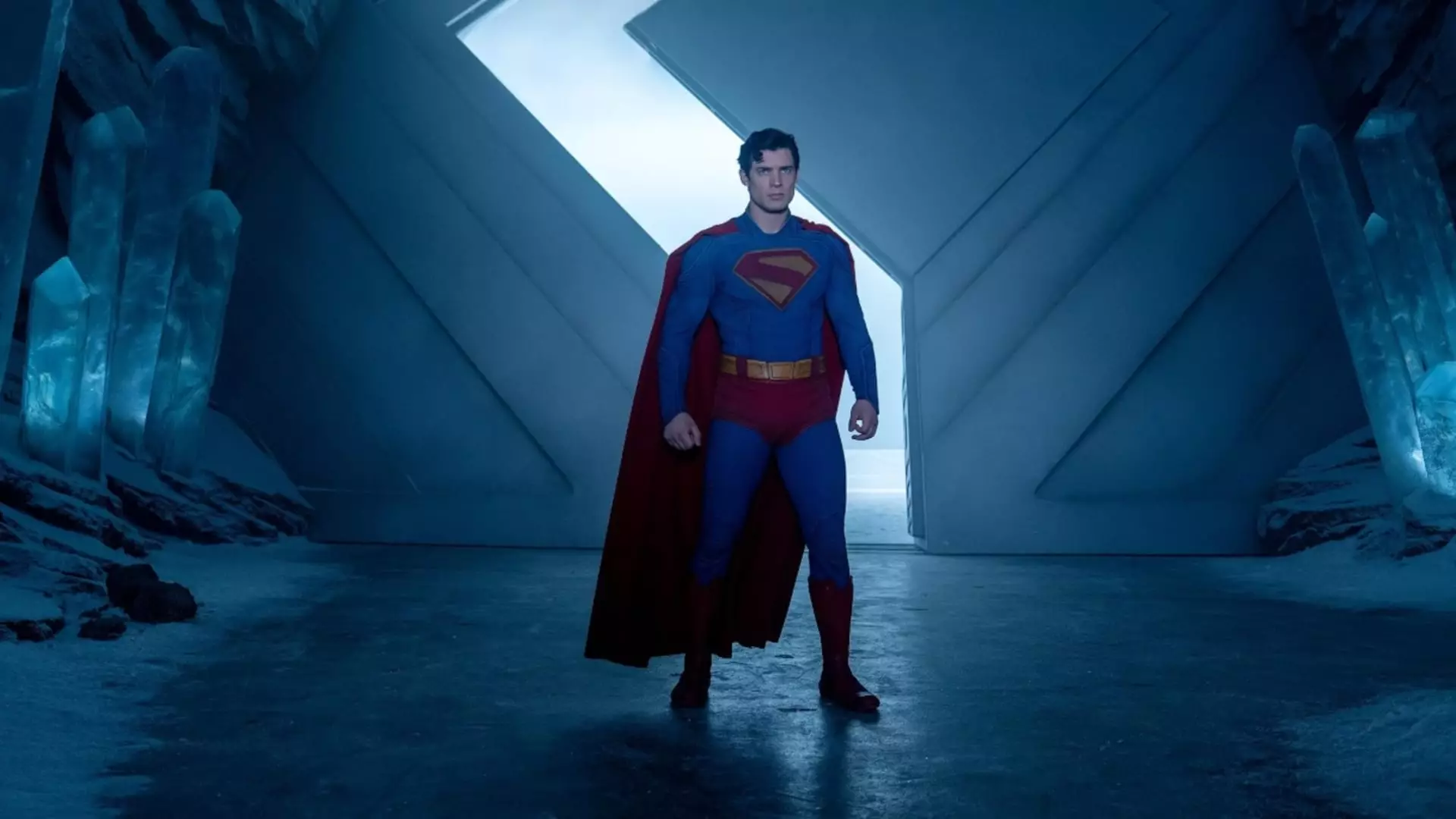Despite the fanfare surrounding Warner Bros.’ latest Superman reboot, one must scrutinize whether this ambitious push is truly a sign of revitalization or merely a clever superficial veneer. The film’s impressive preview haul of $22.5 million appears promising—a record-breaking feat for Superman films—yet the real measure of its success lies in long-term audience reception and the film’s ability to sustain cultural relevance. Early metrics may suggest a promising start, but history warns us that initial box office surges often mask deeper issues. DC’s transformation under James Gunn and Peter Safran aims to breathe new life into a franchise that has struggled with inconsistent tonality and waning public interest. Still, reception from critics is cautiously optimistic, with an 83% “Fresh” rating, but critical acclaim is only half the battle; what truly matters is whether the film can transcend its immediate opening weekend and forge a lasting legacy.
Rebooting the Brand Amidst Environmental Skepticism
The ambitious plans of Gunn and Safran reveal a desire to craft a more cohesive and hopeful narrative universe—an intentional departure from the darker, more fractured DC attempts in recent years. While the initial numbers suggest a promising box office resurgence, the broader societal and cultural implications demand consideration. In an era increasingly wary of superhero fatigue and market saturation, the resurrection of Superman could serve as a testament to the enduring appeal of hope and heroism if executed thoughtfully. However, it also exposes the risk of chasing nostalgia at the expense of innovation. The challenge lies in respecting the core ideals of Superman—truth, justice, and hope—without watering down complex storytelling or alienating diverse audiences. This balancing act—between honoring tradition and embracing change—will determine whether this reboot has substance or is merely a fleeting spectacle.
Superheroes as Cultural Symbols: A Reflection of Societal Shift
Superhero films serve as a mirror to societal values and anxieties. The renewed focus on Superman as a symbol of hope offers an opportunity for reflection on contemporary issues—especially in a world rife with political polarization, environmental crises, and social upheaval. The success of this film could signal a public craving for narratives that provide reassurance and aspirational ideals during challenging times. Yet, cynics might argue that Hollywood’s obsession with blockbuster franchises reduces such cultural symbols to mere marketing tools—commodified icons stripped of nuance. A more responsible approach would be to leverage the superhero mythos to foster dialogue around real-world concerns, emphasizing empathy, resilience, and collective action. If the new Superman franchise can pivot beyond simple escapism and instead serve as a catalyst for meaningful cultural conversations, it might transcend its cinematic bounds and become a genuine force for societal reflection.
The Future of DC: High Stakes and High Expectations
Gunn and Safran’s vision for a 10-year plan symbolizes a bold step toward stabilizing and elevating DC’s fractured brand. Yet, ambitious plans are often fraught with pitfalls, from creative conflicts to shifting audience tastes. The early box office success provides a promising platform, but it is hardly a guarantee of long-term dominance. The critical question is whether DC’s new leadership can navigate the delicate landscape of fan expectations, commercial viability, and artistic integrity. With the franchise’s storied history, there is both hope and skepticism—hope that these new directives will rejuvenate beloved characters, skepticism rooted in past overpromises and the lingering effects of inconsistent branding. The future of DC may ultimately hinge on its ability to blend innovative storytelling with respect for the characters’ enduring archetypes, without succumbing to superficial commercialism.
A Cultural Investment or a Short-Term Gamble?
Ultimately, the true measure of Superman’s reboot will not be in the opening weekend figures but in its capacity to inspire, provoke thought, and withstand the tests of time and shifting cultural currents. While the film’s early success suggests that audiences still find hope worth investing in, it also underscores the importance of systemic cultural production that feels authentic and relevant. Hollywood’s flirtation with hero-driven franchises often oscillates between genuine storytelling and high-stakes commercialism—yet, in this case, the stakes are higher than ever. If the new Superman can serve as a beacon of optimistic storytelling without compromising complexity, it could redefine what superhero films can achieve culturally. But if scoreboard metrics and superficial nostalgia dictate its course, then this reboot risks being just another flash in the pan—blazing brightly but fading quickly.

